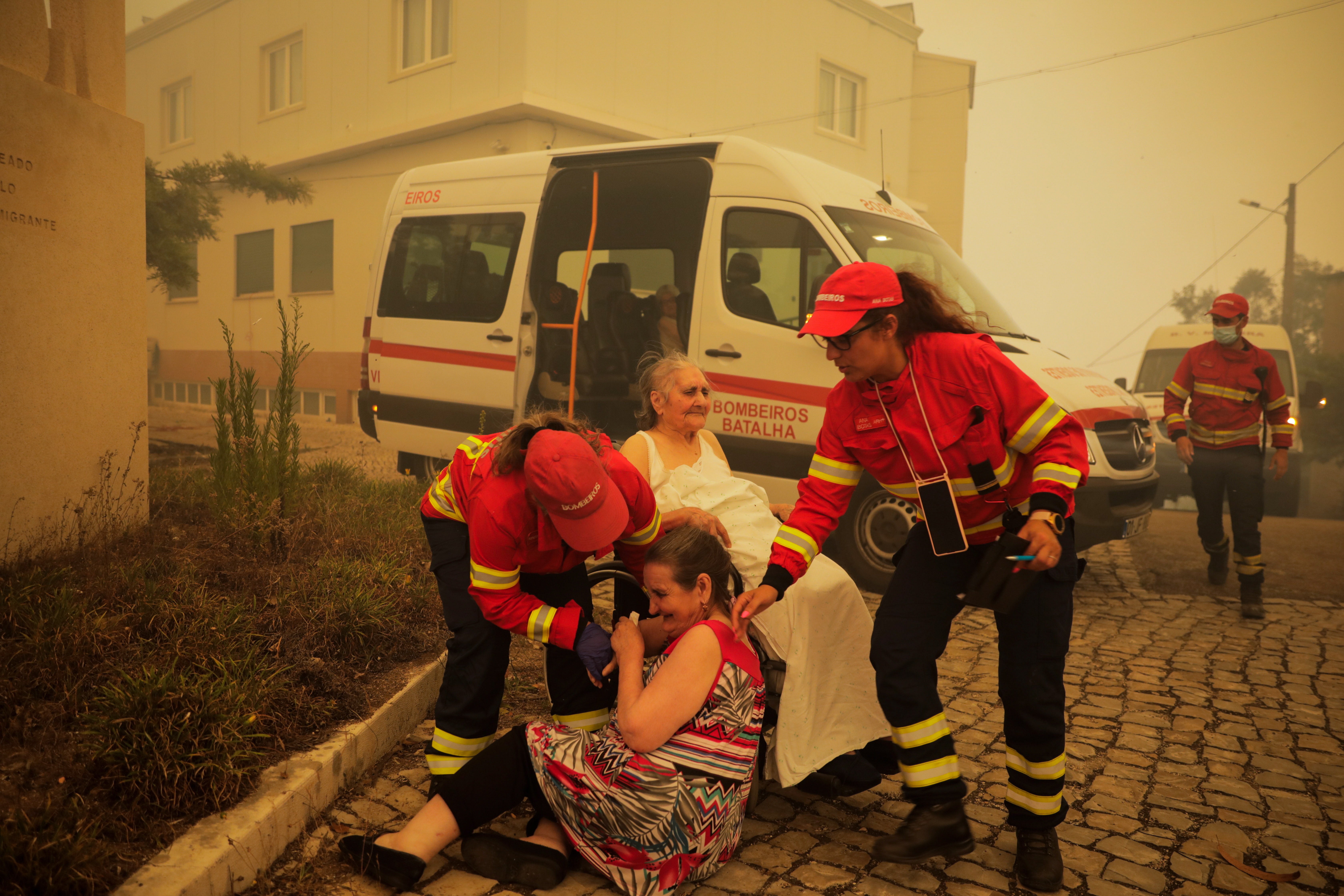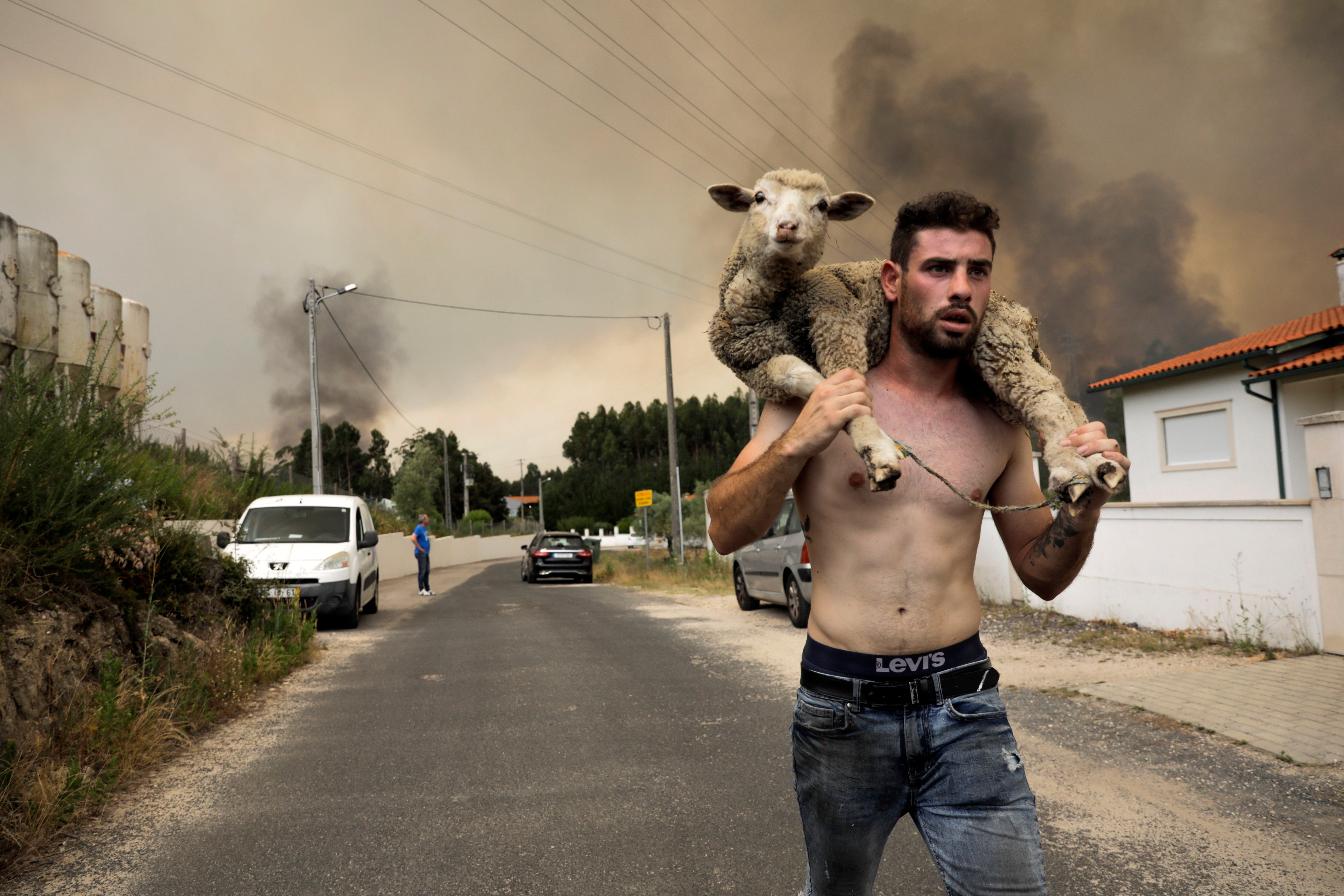Wildfires rage across Europe as climate crisis blamed for soaring temperatures
Thousands evacuated across Portugal, Spain and France as Italy battles with locust invasion

Wildfires scorched across Europe on Wednesday, with blazes in Portugal, Spain, southern France and Turkey, as temperatures soared across the continent.
In Portugal, multiple fires caused the evacuation of more than 600 people and some 120 needed medical treatment, with two people – one civilian and one firefighter – suffering serious injuries, said officials.
Water-dumping planes helped 1,300 firefighters combat the worst of the blazes in the nation’s central area, while another 1,000 worked to bring other fires under control.
Portugal recorded 125 fires on Saturday, the highest number in a single day this year.
The country is enduring a heatwave that is due to worsen, with parts of Portgual predicted to experience temperatures as high as 43C.
Meanwhile, Spain has also been battling temperatures in the early 40s in a heatwave that has also struck the usually cooler northern parts of Spain.
More than 400 people were evacuated on Tuesday because of a wildfire that has consumed 8,600 acres in western Spain.
Cayetano Torres, spokesperson for Spain’s national weather forecaster, said that the “unusual” heat wave and lack of rainfall in recent months has created ideal circumstances for fires.

“These are perfect conditions for the propagation of fires, which when you add to that some wind, you have guaranteed propagation,” he said.
Meanwhile. thousands of tourists were evacuated after wildfires in southwestern France burnt approximately 1,500 hectares of land.
Airborne firefighters and hundreds of emergency crew battled on Wednesday to bring the blaze under control as the country faces its second heatwave in two months.
More than 800 firefighters battled two wildfires in the region outside Bordeaux in southwest France, according to the regional emergency service. The fires began Tuesday near the towns of Landiras and La Teste-de-Buch.
“Four aircraft and a lot of firefighters are mobilised with help coming from neighbouring departments,” the local authority for the Gironde department said, which has been affected by the fires.
France has already suffered wildfires this year, with almost 200 hectares of vegetation destroyed in Occitanie as recently as June. One of the fires ripped through 60 bungalows at Europe’s largest campsite.

In Italy, which is also facing extreme heat and drought conditions, farmers on the island of Sardinia have seen swarms of billions of locusts ravage their land in the worst such invasion for more than three decades.
The invasion is projected to affect an area of around 150,000 acres this year, double that of last year.
Some farmers fear they may go out of business as the plague of locusts adds to the impact of drought and rising fuel costs on farmers.
The problem is not new in Sardinia. Depopulation and uncultivated lands were some of the main reasons for the huge number of locusts, but rising temperatures and lack of rain also play a big role as dry and compacted soil makes it easier for locusts to lay their eggs.
Last week, it was announced that the River Po, Italy’s longest, was suffering its worst drought for 70 years, which threatened around a third of Italy’s agricultural production.
The Po is Italy’s longest river, and runs for more than 400 miles through the wealthy north of the country.

European Union officials issued a warning last week that climate change is behind the extremely dry and hot summer so far on the continent, urging local authorities to brace for wildfires.
In southwestern Turkey, a blaze erupted in an area close to the village of Mesudiye, near the Aegean Sea resort of Datca, and was moving in the direction of some homes in the area, according to the provincial governor’s office.
It said at least nine water-dropping helicopters and five planes were deployed to battle the fire.
Join our commenting forum
Join thought-provoking conversations, follow other Independent readers and see their replies
Comments


Bookmark popover
Removed from bookmarks